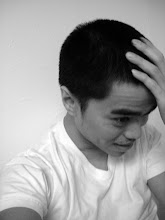Monday, February 23, 2009
Blindside
It's Your Ride from Cinecycle on Vimeo. There's a bike scene in Richmond that is prevalent among college students. I wanted to pay homage to the culture by showing this beautifully shot video. I think this video was made for a certain bike tire company. Anyways I would rather would walk than bike, I have a sense of control (I power walk a lot because i want to think i could stop time), there's a so much time to gaze (take in things, absorb), and people watching is sometimes fun depending on how interesting the situation presents itself.
Women writers have always been dominated by European white males in American literature. But it wasn't only women who were cut short, also minorities. Since the 1970s, Jewish, Latin American, Asian American, women writers of all cultural backgrounds, gay and lesbian writers started to emerge. During the 1950s, the jazz age was taking over mainstream America, African American authors were on center stage. This short story is about the love of music and how it can be a healing motivation to overcome obstacles.
James Baldwin sets the story of “Sonny’s Blues” in an urban neighborhood in Harlem. In the beginning, the narrator is being portrayed as someone who is successful and a stable family man. In contrast, his brother, Sonny, was the stereotype of a black man during those days. He was a jazz musician and also a heroin addict. These character analyses show the barriers of black people who assimilated into white culture and others who were less accepting to the status quo. For those who did not give into the dominant culture, they found their cultural identity through music.
In one pivotal point of the story, the narrator sees Sonny play the piano at a nightclub in Greenwich Village. Sonny’s music gets a hold of him, and then hits a chord within him. The music is soothing and self-reflective. In that moment, the two brothers temporarily escape the troubles of their reality. Finally, the narrator reaches to a conclusion that Sonny was the one saving him. Ironically, the narrator tries doing the right things in life, but ends up suffering from all his rigid ways. He thought that Sonny needed to be saved because of his addiction. But at the end, the narrator finally understands how music can help Sonny endure his struggles.
After reading "The Body Politic" by Abra Fortune Chernik, being anorexic gave her a sense of empowerment over her body. Her body just betrayed her. Everyone was going on with their lives, and she was till trapped and lost. She finally recovered from her illness after years of therapy and when she discovered feminism it sparked her to be active in the movement. Just like "The Body Politic", the narrator was fooled by Sonny's erratic ways. He thought Sonny wasn't going through a destructive path, but at the only person who could restore his life was himself. The narrator was quick to fix his broken brother, but music cured him which is an unlikely catalyst at the end of the story.
Subscribe to:
Post Comments (Atom)




hey john! you found me. haha
ReplyDelete